A town in ruins. There was massive destruction of civilian property: houses, factories, fields, villages – sometimes even whole towns – were obliterated. The catastrophic results for civilians included shortages, famine and displacement.
From our archives: The First World War
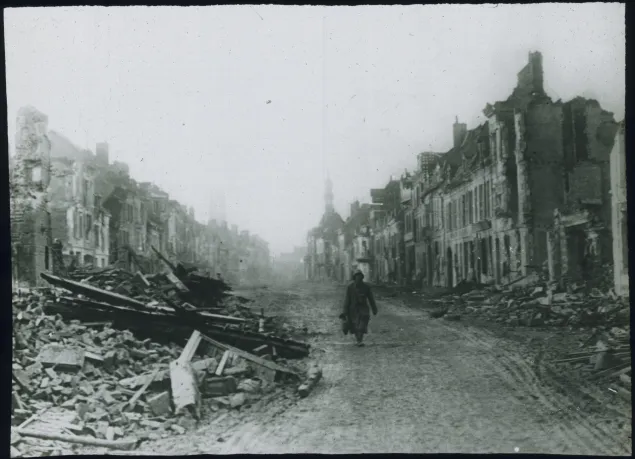
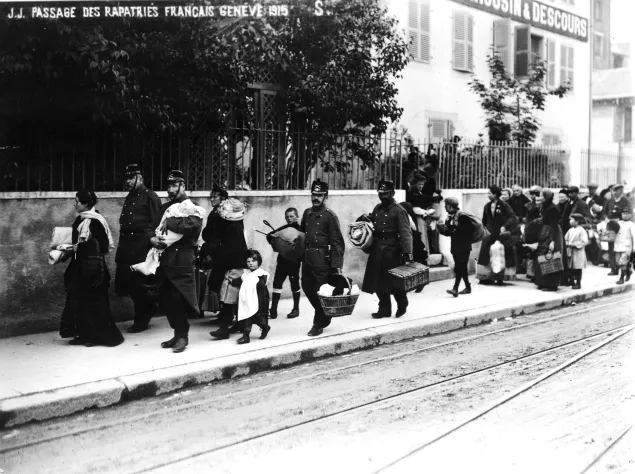
Switzerland, Geneva, 1915. Civilians who have fled fighting and occupation in northern France cross Switzerland on their way to safer parts of their country.
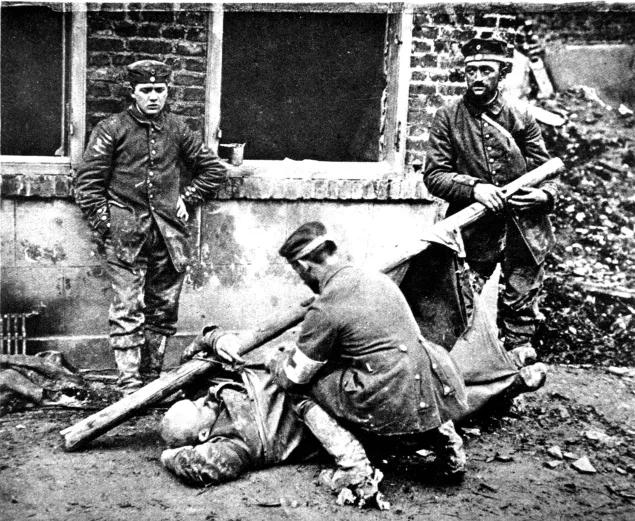
France, a wounded German soldier. Millions of soldiers were killed or wounded during a war often referred to in terms of human slaughter.
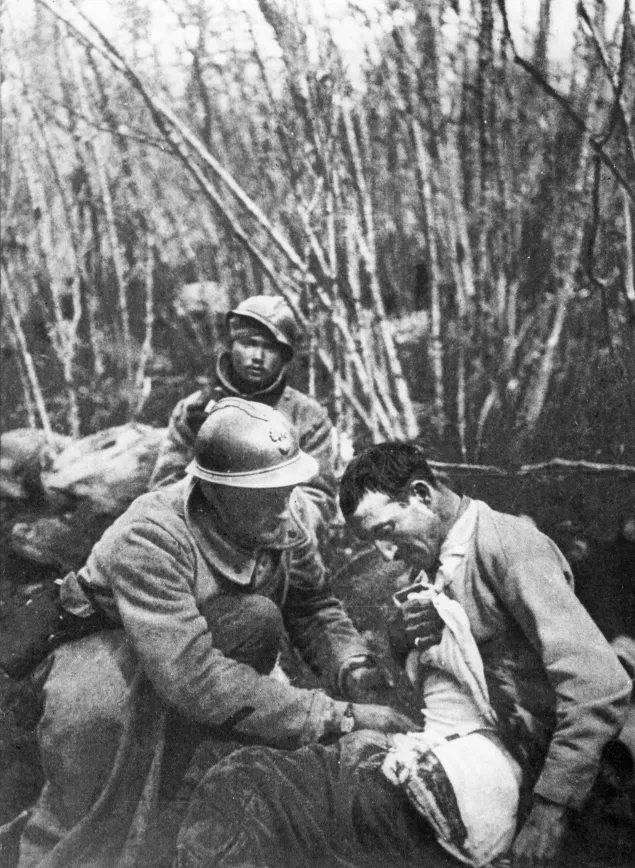
Health workers helping a wounded French soldier. The 1906 Convention for the Amelioration of the Condition of the Wounded and Sick in Armies in the Field protected army health workers and volunteers working with aid societies.
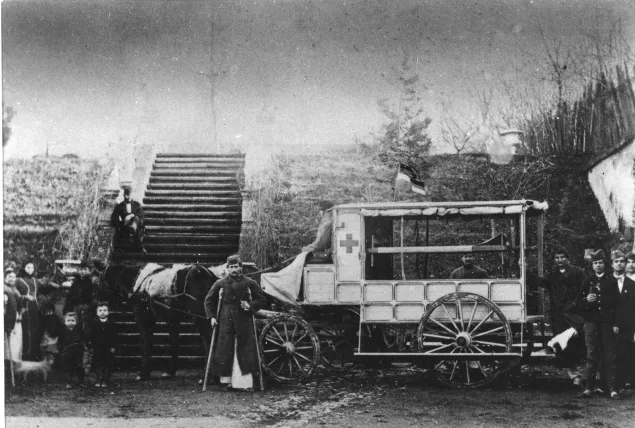
The wounded were taken to this Hungarian Red Cross ambulance near the battlefield to receive first aid before being evacuated.
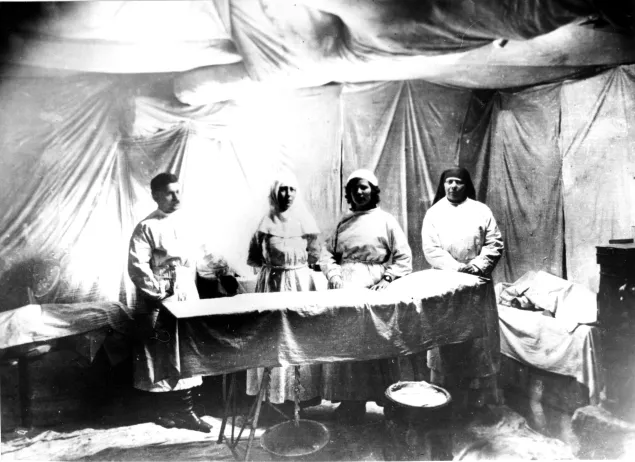
Transbaikal, Russia, 1916. The surgical unit in the dressings room of the Russian Red Cross hospital.
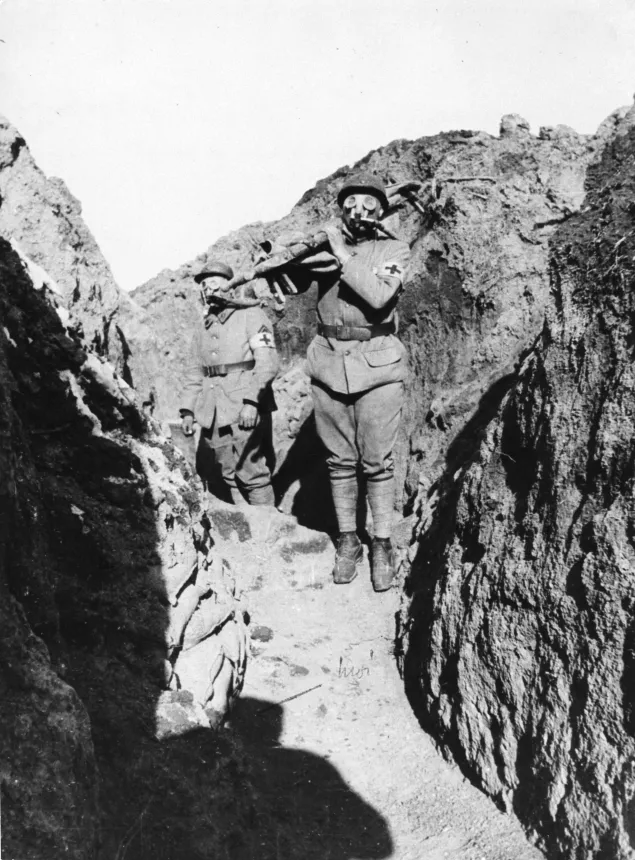
A French trench. Stretcher-bearers wearing gas masks. The first gas attacks took place in 1915. In February 1918 the ICRC launched an appeal against what it referred to as a “barbarous innovation … which we can only describe as criminal.”
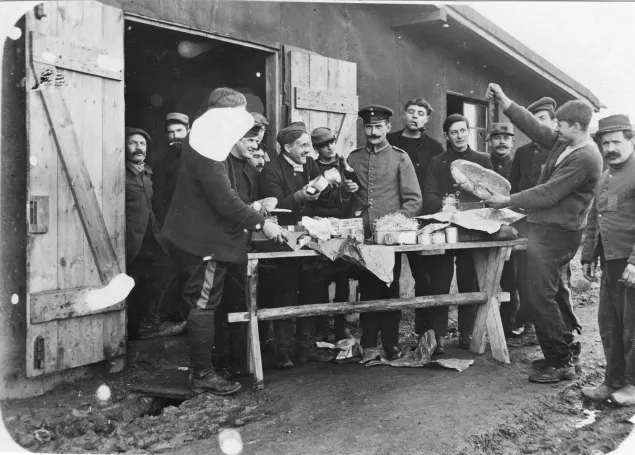
Distribution of parcels to French prisoners of war, Würzburg camp, Bavaria. In August 1914 the ICRC set up the International Prisoners of War Agency in Geneva, which centralized information and arranged for the delivery of parcels to prisoners.
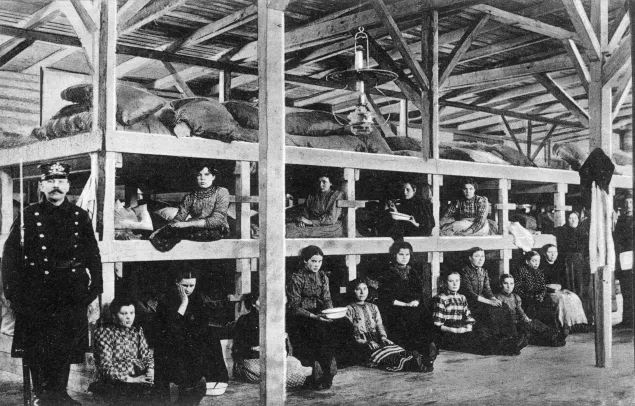
Havelberg, Prussia. Women’s dormitory in the civilian internment camp. Civilian internees are civilians of enemy nationality who are detained by a party to a conflict. Their status is similar to that of prisoners of war.
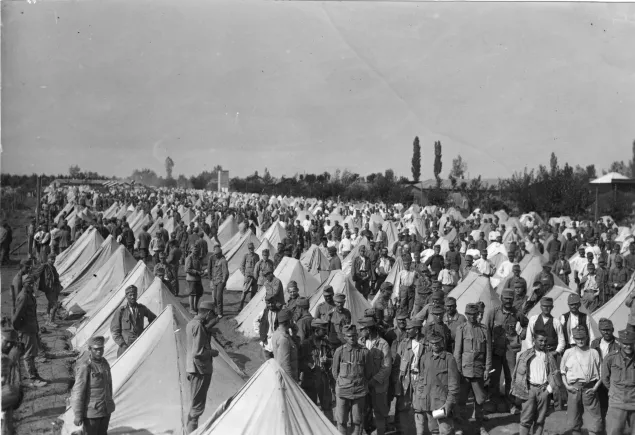
Austrian prisoners of war in Italy. It was during the First World War that ICRC delegates first visited prisoners of war to make sure that their living conditions were satisfactory. They made more than 500 visits to prison camps in Europe and round the world.
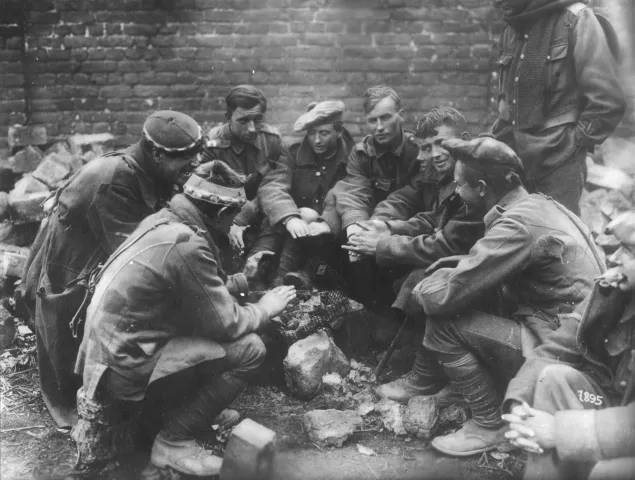
A group of British prisoners of war after the Germans had re-taken the town of Bapaume in northern France in 1918.
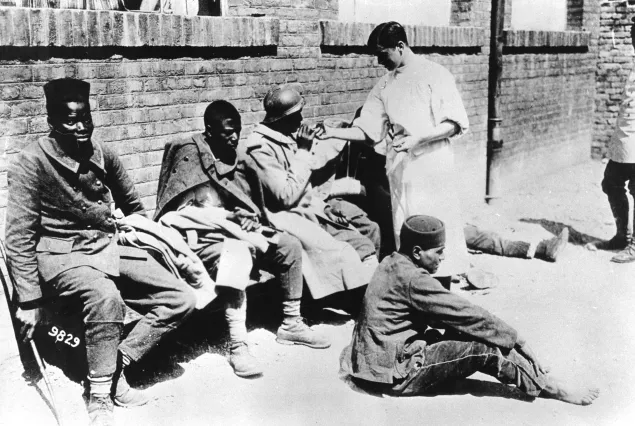
Cigarettes are distributed to Senegalese prisoners of war held by the Germans in Belgium.
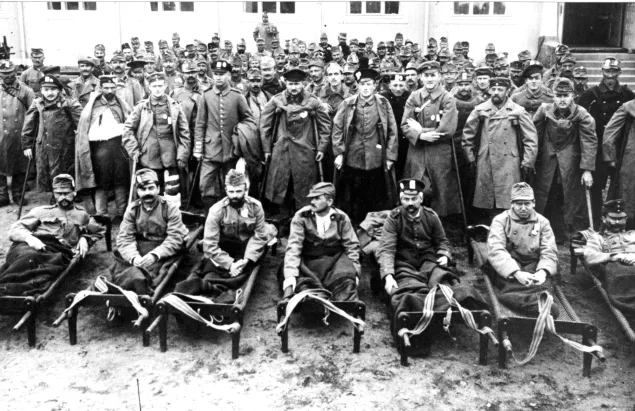
German and Austro-Hungarian war wounded pose in front of Tornea Hospital in Russian Finland. They were later repatriated when the Swedish Red Cross organized exchanges of war wounded.
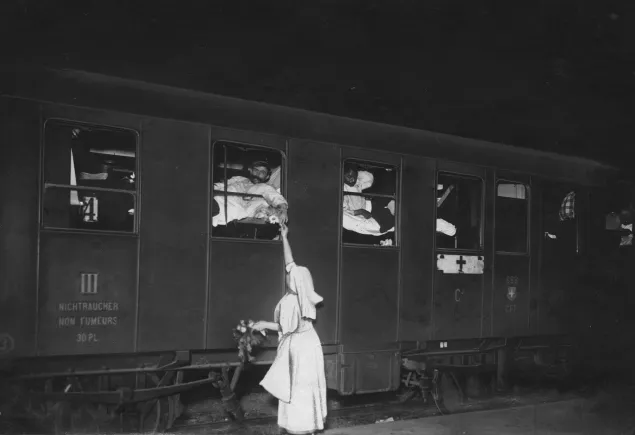
Geneva. A train passes through Switzerland on its way to Lyon in France carrying seriously wounded soldiers and health workers. The wounded were former French prisoners of war held in Germany.
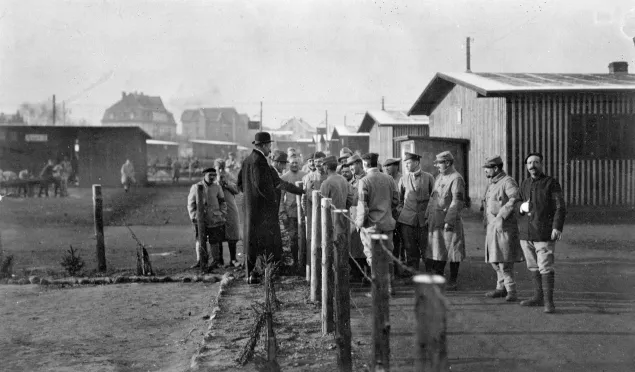
1919. Paul Schatzmann, an ICRC delegate, visits an Allied prisoner-of-war camp, probably in Serbian Macedonia. Prison camp visits continued after the war. The ICRC was also involved in organizing the return home of thousands of former prisoners.
The First World War caused more death and destruction than any previous conflict. New weapons and methods of warfare were introduced, including chemical weapons and long-range bombardment. The Great War had appalling humanitarian consequences and the ICRC, supported by the 38 National Red Cross and Red Crescent Societies in existence at the time, did everything it could to alleviate at least some of the suffering.



